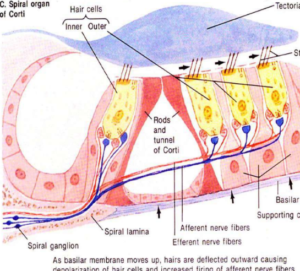Hearing and speech development
Cornell notes
🌟 Cues
- Functional links between speech and hearing
- Cognitive development of speech
- Social and psychological consequences of hearing loss
- Communication and language development
- Hearing anatomy and auditory pathways
- Theories of language acquisition
- Consequences of hearing loss
🗒️ Notes
- Speech & Hearing Connection: Hearing is crucial for communication, and speech relies on the integrity of vocal tract and brain language centers.
- Communication Cycle: Verbal and non-verbal communication are unique to humans, requiring cognitive, social, and environmental stimulation for development.
- Language Development: Normal language development depends on brain function, sensory input (hearing), attention, and environmental stimuli. Hearing impairment can lead to delayed speech and language disorders.
- Hearing Anatomy: The ear is vital in auditory processing, beginning with the organ of Corti and transmitted through the auditory pathway to the brain’s temporal lobe for sound processing and speech comprehension.
-
Language Acquisition Theories:
- Nature (Biological): Innate predisposition for language (Chomsky’s LAD).
- Nurture (Environmental): Language learned through conditioning (Skinner).
- Mixed: Both innate and environmental factors shape language development.
- Consequences of Hearing Loss: Leads to delays in communication, social isolation, psychological impact, and educational challenges.
📝 Summary
Hearing plays a fundamental role in language development, with strong links between auditory function and cognitive, social, and emotional growth. Theories of language acquisition highlight both innate and environmental factors in language learning. Hearing impairment can significantly delay language development and impact social interactions, emphasizing the importance of early detection and intervention.
🗃️ Recall
⭐ Rate lecture ease
1/5 - (1 vote)

